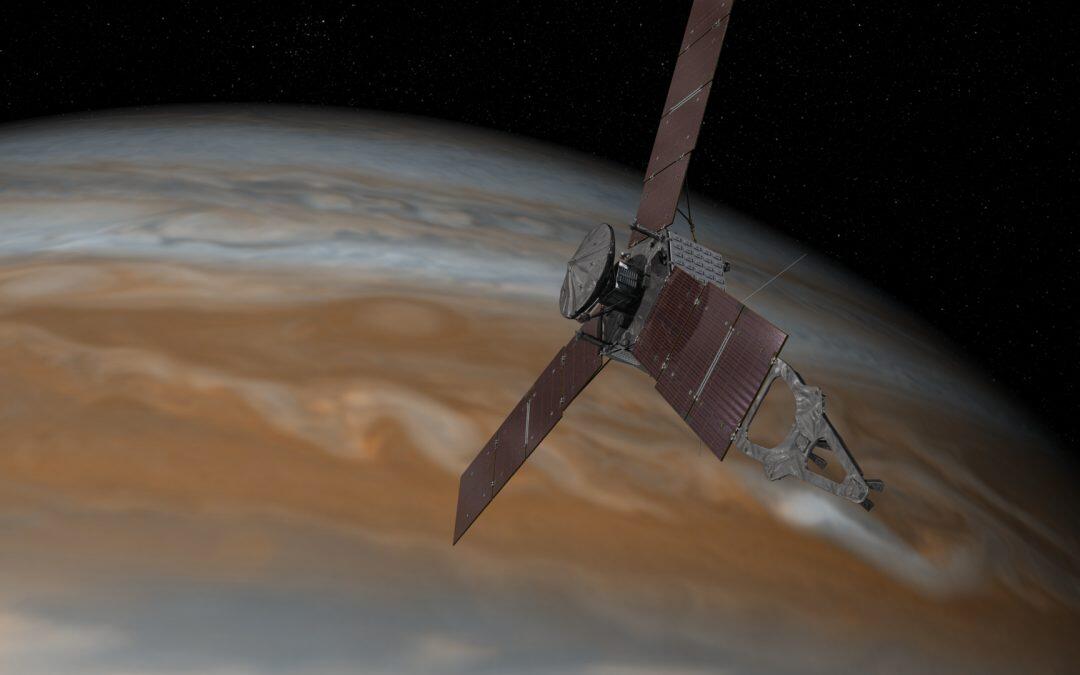NASA’s Juno mission is now 26 days and 11.1 million miles (17.8 million kilometers) away from the largest planetary inhabitant in our solar system — Jupiter. On the evening of July 4, Juno will fire its main engine for 35 minutes, placing it into a polar orbit around the gas giant. It will be a daring planetary encounter: Giant Jupiter lies in the harshest radiation environment known, and Juno has been specially designed to safely navigate the brand new territory.
We’re currently closing the distance between us and Jupiter at about four miles per second,” said Scott Bolton, principal investigator for Juno from the Southwest Research Institute in San Antonio. “But Jupiter’s gravity is tugging at us harder every day and by the time we arrive we’ll be accelerated to 10 times that speed — more than 40 miles per second (nearly 70 kilometers per second) — by the time our rocket engine puts on the brakes to get us into orbit.”
The Juno mission team is using these last weeks to evaluate and re-evaluate every portion of the Jupiter orbit insertion (JOI) process, finding very low probability events and running them to ground — determining which, if any, need to be addressed. Two scenarios have been identified for further work. The first is a variation in how Juno would come out of safe mode—a protective mode if the spacecraft were to encounter an anomaly or unexpected condition. A second item involves a minor software update.
“We are in the last test and review phases of the JOI sequence as part of our final preparations for Jupiter orbit insertion,” said Rick Nybakken, project manager of Juno for NASA’s Jet Propulsion Laboratory in Pasadena, California. “Throughout the project, including operations, our review process has looked for the likely, the unlikely and then the very unlikely. Now we are looking at extremely unlikely events that orbit insertion could throw at us.”
Source: NASA











